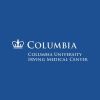How to Understand Heart Disease Treatment Options
Heart disease is a condition that affects millions of people worldwide, including many right here in the United States. As someone who has personally navigated the maze of heart disease treatment options, I understand how overwhelming it can be to choose the right path for your health. The variety of treatments available can be confusing, and it can sometimes feel like you’re faced with too many decisions and too much information. In this article, I’ll share my personal journey in understanding heart disease treatments, along with the most common options and how to make an informed choice for your care.

1. What is Heart Disease?
Before we dive into the treatment options, it’s important to understand what heart disease is. Simply put, heart disease refers to a range of conditions that affect the heart, including coronary artery disease, heart attacks, heart failure, arrhythmias, and more. For me, the journey began when I was diagnosed with coronary artery disease—a condition where the blood vessels that supply the heart become narrowed or blocked by plaque. It was a wake-up call, and like many people, I found myself questioning the best way to manage and treat this serious health concern.
Heart disease doesn’t look the same for everyone, and symptoms can vary from person to person. In my case, chest pain, shortness of breath, and dizziness were the warning signs that led me to seek medical attention. Understanding the specific condition you’re facing is crucial, as it will determine the treatment options that are most appropriate for you. Once diagnosed, your doctor will discuss the various options available to treat your heart disease.
Atlanta Heart Specialists
atlanta heart specialists
4375 Johns Creek Pkwy #350, Suwanee, GA 30024, USA

2. Lifestyle Changes: The First Line of Defense
One of the first things I learned on my journey to managing heart disease is that lifestyle changes are often the foundation of any treatment plan. This was especially true for me, as I was advised to make several adjustments to my daily habits to improve my heart health. These changes are not only easy to implement but can have a significant impact on preventing the progression of heart disease.
Common lifestyle changes include:
- Diet: Eating a heart-healthy diet rich in fruits, vegetables, whole grains, and lean proteins can help reduce cholesterol and blood pressure. I started by cutting out processed foods and limiting my intake of red meat.
- Exercise: Regular physical activity is crucial for heart health. I began with light activities like walking and gradually worked my way up to more intense workouts.
- Stress Management: High stress can negatively affect your heart. Meditation, yoga, and deep breathing exercises became essential parts of my routine.
- Quitting Smoking: If you smoke, quitting is one of the most effective ways to protect your heart. Thankfully, I was already a non-smoker, but for others, this is a key step in improving heart health.
For many people, these lifestyle changes can be enough to improve heart health and slow the progression of heart disease. For others, additional treatments may be necessary. Fortunately, there are a variety of treatment options available, ranging from medications to more advanced procedures.
3. Medications: Managing Heart Disease with Drugs
For me, lifestyle changes weren’t enough to completely manage my heart disease, so my doctor prescribed medications to help control the symptoms and reduce the risk of complications. There are several types of medications commonly prescribed for heart disease, each with specific purposes. Here are some of the most common medications I’ve encountered:
- Statins: These drugs help lower cholesterol levels, which can reduce the risk of plaque buildup in the arteries. I was prescribed a statin to help manage my cholesterol levels and prevent further artery blockage.
- Beta-Blockers: Beta-blockers are used to lower blood pressure and heart rate, which can reduce the workload on the heart. I found this particularly helpful during stressful situations when my heart rate would spike.
- Antiplatelet Drugs: These medications help prevent blood clots, which can lead to heart attacks or strokes. I was given aspirin as part of my treatment plan to help reduce the risk of clotting.
- ACE Inhibitors: These medications help relax blood vessels and reduce blood pressure, making it easier for the heart to pump blood. My doctor prescribed this for me as a way to help manage high blood pressure.
Medications can be very effective in managing heart disease and reducing the risk of complications, but they’re usually just one part of the overall treatment plan. It’s important to work closely with your healthcare provider to find the right combination of medications for your specific condition.
4. Surgical Procedures: When Medications Aren’t Enough
In some cases, medications and lifestyle changes may not be enough to fully address heart disease. That’s when doctors may recommend surgical interventions. Over the course of my treatment, I’ve learned about several surgical options that can help patients with more advanced or severe forms of heart disease. These procedures are typically reserved for cases where medications are no longer effective or when the heart disease has caused significant damage.
Some of the most common surgical treatments include:
- Angioplasty and Stenting: This procedure involves inserting a small balloon into a blocked artery to widen it, and then placing a stent to keep the artery open. It’s a common procedure for people with coronary artery disease like mine.
- Coronary Artery Bypass Grafting (CABG): This surgery involves bypassing blocked or narrowed coronary arteries by using blood vessels from other parts of the body. It’s often used for patients with multiple blockages in their arteries.
- Heart Valve Repair or Replacement: If you have a heart valve problem, your doctor may recommend repair or replacement surgery. This is often necessary for people with heart valve disease.
- Implantable Devices: For certain heart conditions, such as arrhythmias, devices like pacemakers or defibrillators may be implanted to help regulate heart rhythm.
These procedures can significantly improve heart function and quality of life, but they come with risks, and recovery can take time. I personally found it helpful to consult with my doctor about all of the options available and weigh the pros and cons before making any decisions about surgery.
5. Finding Support: Managing Heart Disease Together
Living with heart disease can feel isolating at times, but one thing I’ve learned is that having a strong support system is key. My family and friends have been incredibly supportive throughout my journey, and I’ve also found value in joining a heart disease support group. Being able to share experiences and learn from others who are going through similar challenges has been both comforting and empowering.
There are many resources available for people dealing with heart disease, including online forums, in-person support groups, and counseling services. If you’re struggling with the emotional side of heart disease, I highly recommend seeking out support. Not only does it help with mental well-being, but it can also improve your overall outlook on managing your health.





















Deborah Heart and Lung Center
deborah heart and lung center
200 Trenton Rd, Browns Mills, NJ 08015, USA